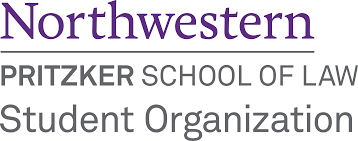Tips for Career Success from WLC's 2022 Symposium Week
The WLC’s 2022 Symposium Week started off with the In-House Career Panel featuring Ashley Kirkwood (Lead Corporate Trainer and Principal Attorney, Mobile General Counsel), Evelyn Fitzgerald (Executive Director, Social Venture Partners Chicago), Elizabeth Kahlil (Managing Director, Associate General Counsel, US Chief Privacy Officer, CIBC), and Ashleigh Morpeau (Senior Counsel of Products and Marketing, Camping World). Next, WLC held a Public Interest Career Panel with Alice Setrini (Exec. Director of Mary and Michael Jaharis Health Law Institute at DePaul University College of Law), Kate Shank (Deputy Directory, Legal Aid Chicago), and Lizzie Whitehorn (First Assistant Deputy Governor, Office of Governor of IL). Finally, WLC was thrilled to have Stephanie Scharf, founder of Scharf Banks Marmor, as our Keynote speaker to conclude the week.
We were so grateful to hear from these amazing women on how they found success and navigated launching their careers. They gave attendees great advice, and hopefully this blog post will provide encouragement and tips as law students look ahead to their summer jobs.
Find a mentor.
Multiple panelists emphasized that while it can be a challenge, finding a mentor is crucial. Many junior and midlevel associates struggle to determine how they are doing in their career. Mentors can provide helpful guidance, and they may be easier to find than students think. For instance, Setrini shared how she highly values being a mentor and building her community.
Additionally, Scharf shared her thoughts about what to look for a mentor. She provided specific questions for students to ask themselves when assessing whether a partner is good to work with:
Do they respond to your emails within two hours?
Do they ask if you agree with decisions?
Do they give you timelines in a project?
Do they take the time to compliment your work, and do they share your successes with the broader team?
Do they give critical feedback in private? Do they avoid calling you out and embarrassing you?
While not every law firm partner with whom you work will become your mentor, both mentors and good partners can help support your career and advocate for you.
Advocate for yourself.
Advocating for yourself is important in a variety of contexts. Setrini shared how judges and opposing counsel have asked if she was an interpreter or student. Clients have also asked her where the real lawyer was, and judges have made comments about her appearance. Setrini advised growing a thick skin and advocating for yourself in front of judges.
Furthermore, Whitehorn shared how important it is to use your voice strategically and strongly when working in groups. Other people, such as partners or mentors, will not always recognize your work, and it is up to you to advocate on your own behalf.
One tip Kirkwood shared is to find a commonality between you and whoever you’re working with, which can help lay the foundation for a working relationship. Additionally, Scharf emphasized the importance of being proactive about getting work from particular lawyers whose practice areas pique your interest.
Don’t worry if your path isn’t linear.
Almost all of our speakers held multiple jobs before landing where they work now. Some also created their own businesses, such as Kirkwood. Scharf described a woman’s career as a “labyrinth,” and Setrini shared she had a career crisis and took a break during her third year of law school.
Compared to firms, career paths in public interest (PI) can be less mapped out. At a firm, Whitehorn shared, you’ll have annual reviews and some sort of track you’re on. By contrast, in PI, the path is less planned out, but you’ll typically enjoy more leadership opportunities earlier in your career. There also can be more opportunities for different types of projects given the needs of the communities that PI lawyers serve.
Regardless of whether students start their careers in PI or at firms, mentors and professional development opportunities are helpful for any young lawyer.
Law is a tutorial profession.
Scharf said this, and unsurprisingly, this sentiment was brought up by other panelists throughout the week as well. Since there is a learning curve, you will watch others lead before getting to lead yourself. Kahlil developed her leadership skills by adopting bits and pieces from leaders with whom she liked working. Kirkwood suggested tracking your feedback, noting that the most impressive associates never have to be corrected on the same thing twice.
Furthermore, Morpeau advised that if you’ve identified a challenge, there is a solution. Instead of worrying about the challenge, you ought to work on finding the solution.
For those worried about imposter syndrome or the Cinderella complex, Scharf offers a simple cure: fake it till you make it. She said there is nothing wrong with failing to present your weaknesses. Scharf shared that she used to be scared when simply saying, “Good morning, your Honor.” However, the best experiences are doing the things you’re terrified to do.
Post written by: Ashley Justice, 1L Symposium Rep
